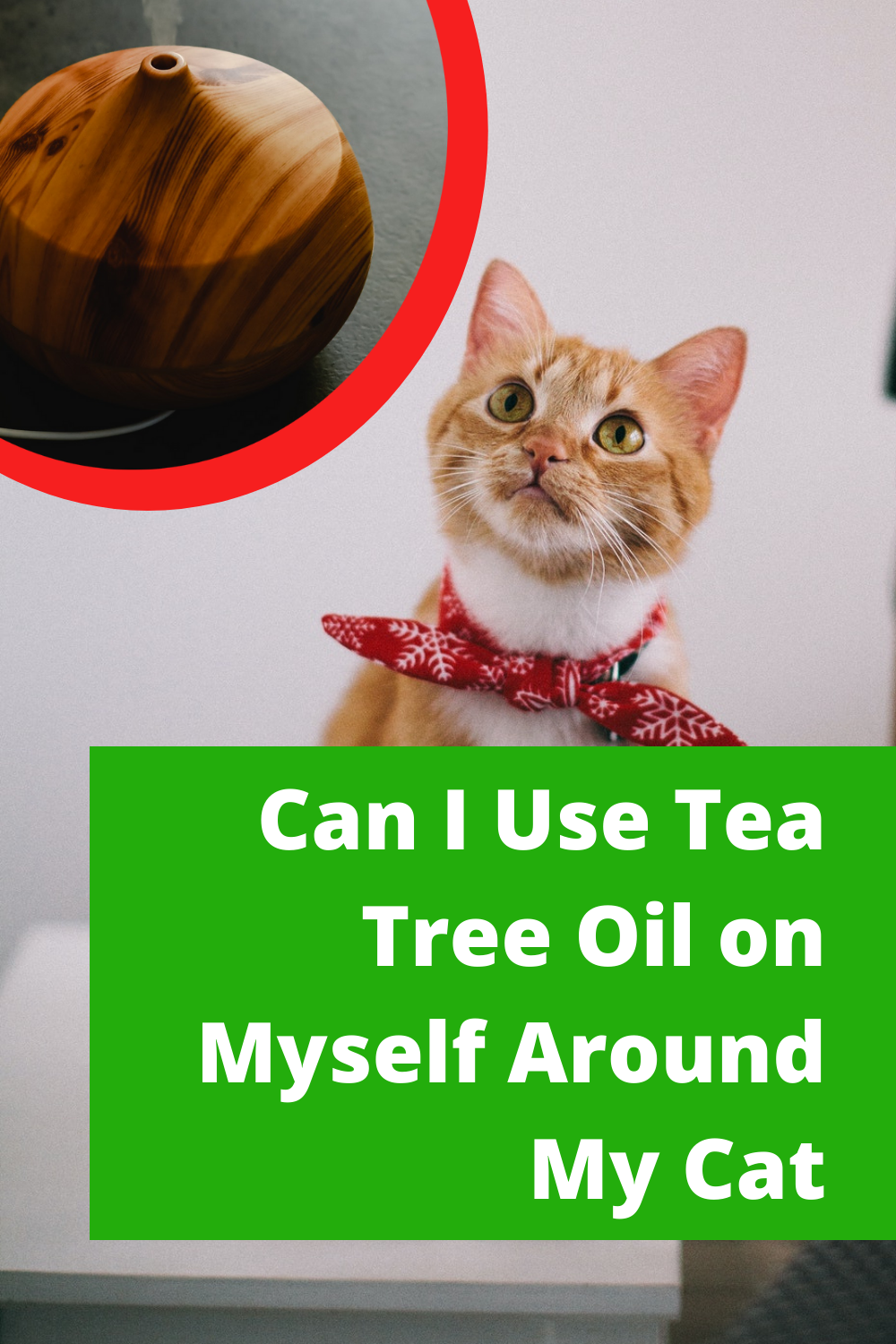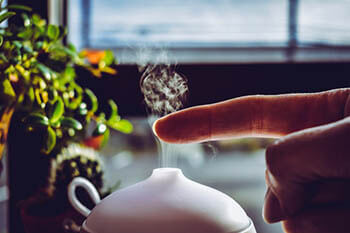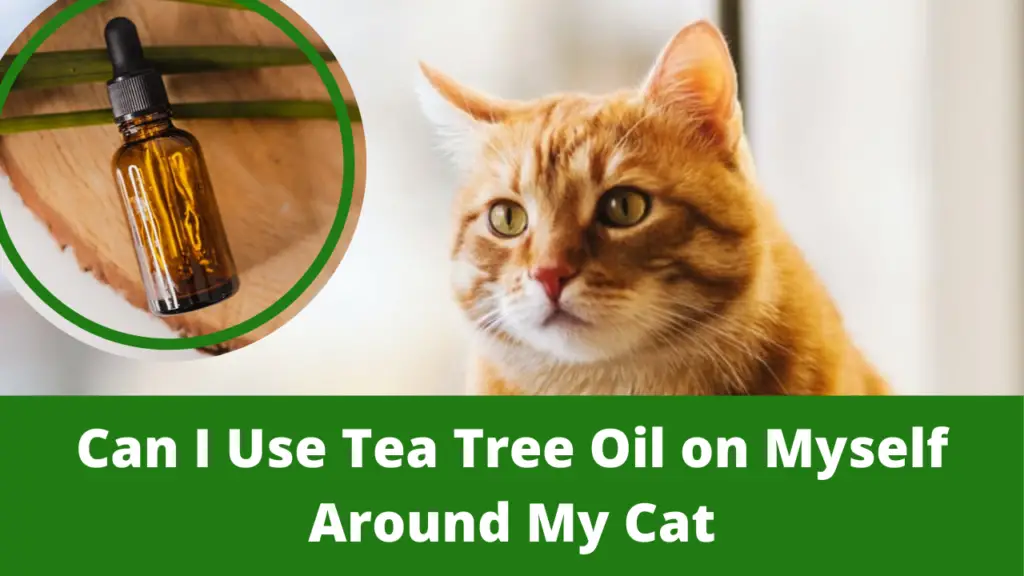Tea tree oil is one of the most common essential oils. It can be used for everything from repelling insects to sanitizing and disinfecting. It can boost wound healing, fight acne, soothe inflammation and control dandruff – but can you use tea tree oil around your cat?
The answer is yes, but with caution. For instance, if you apply tea tree oil to a part of your skin that your cat is likely to lick or sniff, you might put your furry friend at risk. Make sure the area is well covered until you wash the oil off.
How bad is tea tree oil for cats?

The effect of tea tree oil on your cat depends on the amount of oil your cat is exposed to, and in what way. Consuming tea tree oil is obviously the most dangerous. The oil is toxic to humans and pets when consumed, so if your cat ingests oil, seek help immediately.
It goes without saying that you should never apply tea tree oil to your cat’s fur or use it as a natural treatment for fleas or fungal infections.
Using tea tree oil in an essential oil diffuser can also pose a danger to cats, especially those with respiratory issues or similar underlying health problems.Tea tree oil fumes & cats
There’s little published information about whether tea tree oil fumes are dangerous to cats.
However, we know that many other essential oils can be harmful to cats when their fumes are inhaled. There’s also plenty of anecdotal evidence that suggests that tea tree oil fumes are toxic to other small animals. It’s certainly not worth the risk of exposing your beloved pet to tea tree oil fumes in any situation.
My cat licked tea tree oil – what should I do?
Cats love to lick things, especially when they detect new or interesting scents and flavours. If your cat has licked tea tree oil off your skin or a surface, it could be a cause for worry.
Before jumping to the worst, try to determine how much tea tree oil your cat has ingested.
If you think only a small amount of oil has been consumed, wash out your cat’s mouth and continue to monitor him for the next few hours. Look out for signs such as drooling and vomiting.
If your cat has consumed a substantial amount of oil, call your vet straight away. Signs of toxicity usually come on within minutes, such as tremors, balance issues, and salivating.
Unfortunately, there’s no antidote for tea tree oil poisoning, which is why it’s best to keep it out of the way of your pets and eliminate the chance of exposure.

How to dilute tea tree oil for cats
It’s strongly recommended that you don’t use tea tree oil for cats at all, whether diluted or not. It’s common to use this oil as a natural remedy for fleas, but reports show that many cats have died after having this oil applied.
Tea tree oil is only safe to apply on cats when it’s in extremely low concentrations of 0.1 to 1%. It’s very difficult to accurately dilute tea tree oil in a carrier oil, and guesswork just won’t cut it here. It’s best not to use tea tree oil at all.
Does tea tree oil hurt cats?
No, tea tree oil isn’t usually painful to cats. However, it is poisonous, and can cause toxicity. This can potentially result in death.
Symptoms of essential oil poisoning in cats
Some common symptoms of essential oil poisoning in cats are shaking and tremoring, excessive dribbling, vomiting, lethargy, balance problems, and difficulty breathing.
Your cat’s skin may also be sore and red if they have come into physical contact with an essential oil. However, your cat may still be unwell even without damage to the skin.
If your cat is showing any signs of essential oil poisoning, call your vet straight away. They can discuss your cat’s symptoms and talk you through what to do. It’s important to act fast, as oil poisoning can result in seizures or even death.
Tea tree oil diffuser and cats

Using an oil diffuser around cats is risky business. There are a number of essential oils that are dangerous to cats, including peppermint, cinnamon, citrus, pine, ylang ylang, sweet birch, pennyroyal – and tea tree.
As mentioned earlier in this article, scientific research into the effects of tea tree oil on cats when inhaled is limited. However, considering cats are especially sensitive to the majority of essential oils, you may feel that it’s best to avoid tea tree oil to be on the safe side.
If you are going to use tea tree oil in a diffuser, keep it in a ventilated room that your cat doesn’t have access to. If you notice your cat is vomiting, drooling, or behaving unusually, stop using your diffuser altogether. Your cat’s health comes first.
Cat safe essential oils

There are very few essential oils that are actually safe to use around your cats. Those that have lower concentrations of phenols and salicylates, however, won’t pose a health risk if you use them around your cat.
Frankincense, copaiba, helichrysum and lavender are four cat-safe essential oils to stock up on if you still want to use a diffuser in your home. Even so, you should never leave your cat in a confined room with any of these oils.

